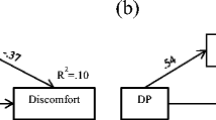Abstract
The purpose of this study was to gain a better understanding of the impact of moral issues on the moral decision-making process within the field of accounting. In particular, the study examined differences in the perceptions of the underlying characteristics of moral issues on the specific steps of the moral decision-making process of four different accounting situations.
The research results suggested that student's perception of the components of moral intensity as well as the various stages of the moral decision-making process was influenced by the type and intensity of the moral issue. In general, accounting student's perceptions of the importance of these variables varied between less unethical and more unethical accounting issues. The differences in perceptions of four moral intensity components: magnitude of consequences, concentration of effect, probability of effect and proximity stood out more in the accounting issues analyzed.
The findings presented in this research extend the existing understanding about the importance of the components of moral intensity in the ethical decision-making process of accounting processionals. The results can be integrated into revised or newly adopted company codes of ethics to comply with the requirements of the newly enacted Sarbones-Oxley Act of 2002. They can also be used to enhance ethics coursework and training programs in educational settings and industry.
Similar content being viewed by others
References
Ameen, E. C., D. M. Guffey and J. J. McMillan: 1996, 'Gender differences in determining the ethical sensitivity of future accounting professionals',Journal of Business Ethics 15, 591–597.
Armstrong, M. B.: 1987, 'Moral development and accounting education', Journal of Accounting Education 5, 27–43.
Barnett, T.: 2004, 'Dimensions of Moral Intensity and Ethical Decision Making: An Empirical Study', Journal of Applied Social Psychology 31(5), 1038–1057.
Business Week, Accounting in Crisis; what needs to be done. January 28, 2002.
Douglas, P., R. Davidson and B. Schwartz: 2001, 'The effect of organizational culture and ethical orientation on accountants' ethical judgments', Journal of Business Ethics 34, 101–121.
Flory, S. M., T. J. Phillips, R. E. Reidenbach and D. P. Robin: 1992, 'A multidimensional analysis of selected ethical issues in accounting', The Accounting Review 67(2), 284–302.
Fritzsche, D. and H. Becker: 1983, 'Ethical behavior of marketing managers', Journal of Business Ethics 2, 291–299.
Hair, J., R. Anderson and W. Tatham. R. Black: 1998, Multivariate Data Analysis (New Jersey: Prentice Hall).
H.R., 107th, Cong., 2nd Congress: 2002, Sarbones-Oxley Act. Retrieved February 4, 2003. http:// frweb-gate. access.gpo.gov/cgibin/getdoc.cgi?dbname=107_cong_bills&docid=f:h3763enr.txt.pdf.
Jeffery, C.: 1993, 'Ethical development of accounting students, non-accounting business students, and liberal arts students', Issues in Accounting Education. Spring 8(1), 86–97.
Jones, T. M.: 1999, 'Ethical decision making by individuals in organizations: An Issue-Contingent Model', Academy of Management Review 16(2), 366–395.
Ketchand, A. A., R. E. Morris and W. E. Shafer: 1999, 'An analysis of the role of moral intensity in auditing judgments', Research on Accounting Ethics 5, 249–269.
Low, T., L. Ferrell and P. Mansfield: 2000, 'A review of empirical studies assessing ethical decision-making in business', Journal of Business Ethics 25, 185–204.
May, D. R. and K. P. Pauli: 2002, 'The role of moral intensity in ethical decision making: A review and investigation of moral recognition, evaluation, and intention', Business and Society 41(1), 85–118.
Merritt, J.: 2002, 'For MBAs, Soul-Searching 101', Business Week 3799, 64–65.
Morris, S. and R. A. McDonald: 1995, 'The role of moral intensity in moral judgments: An empirical investigation', Journal of Business Ethics 14, 715–726.
Myers, R.: 2003, 'Ensuring ethical effectiveness', Journal of Accountancy 195(2), Retrieved from www.aicpa.org/ pubs/jofa/Joahome.htm.
Nussbaum, B.: 2002, Can you trust anybody anymore? Business Week January 28, 30–33.
Rest, J. R.: 1986, Moral Development: Advances in Research & Theory (New York: Praeger).
Shafer, W. E., R. E. Morris and A. A. Ketchand: 1999, 'The effects of formal sanctions on auditor independence', Auditing 18, 85–101.
Shaub, M. K.: 1994, 'An analysis of the association of traditional demographic variables with the moral reasoning of auditing students and auditors', Journal of Accounting Education 12(1), 1–26.
Silver, L. and S. Valentine: 2001, 'College students' perceptions of moral intensity in sales situations', Journal of Education for Business 75(6), 309–314.
Singhapakdi, A., S. J. Vitell and K. L. Kraft: 1996, 'Moral intensity and ethical decision-making of marketing professionals', Journal of Business Research 36, 245–255.
Singhapakdi, A., S. J. Vitell and G. R. Franke: 1999, 'Antecedents, consequences, and mediating effects of perceived moral intensity and personal moral philosophies', Journal of the Academy of Marketing Science 27(1), 19–36.
Weber, J.: 1990, 'Managers' moral reasoning: Assessing their responses to three moral dilemmas', Human Relations 43(7), 687–702.
Weber, J.: 1999, 'Influences upon managerial moral decision-making: Nature of the harm and magnitude of consequences', Human Relations 49(1), 1–22.
Wright, G. B. and C. P. Cullinan: 1997, 'The Relationship between an individual's value and perceptions of moral intensity: An empirical study', Behavioral Research in Accounting 9, 26–41.
Wright, G. B., C. P. Cullinan and D. M. Bline: 1998, 'Recognizing ethical issues: The joint influence of ethical sensitivity and moral intensity', Research on Accounting Ethics 4, 29–52.
Author information
Authors and Affiliations
Rights and permissions
About this article
Cite this article
Leitsch, D.L. Differences in the Perceptions of Moral Intensity in the Moral Decision Process: An Empirical Examination of Accounting Students. Journal of Business Ethics 53, 313–323 (2004). https://doi.org/10.1023/B:BUSI.0000039378.74446.df
Issue Date:
DOI: https://doi.org/10.1023/B:BUSI.0000039378.74446.df




